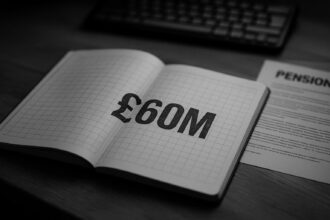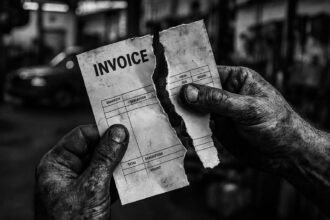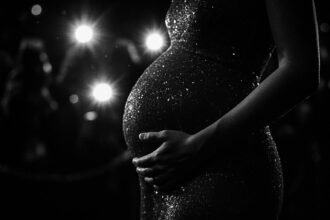The UK government has suffered its third defeat in the House of Lords over proposed AI copyright amendments, as prominent artists like Elton John and Paul McCartney join creative communities in opposing plans that could allow tech firms to exploit artistic works without proper compensation.
The ongoing debate surrounding the UK government’s approach to copyright laws in the context of artificial intelligence (AI) has intensified, particularly following a recent parliamentary defeat concerning proposed amendments to protect creators from the unauthorized use of their work by tech companies. This marks the government’s third setback in the House of Lords over issues that have sparked significant protests among artists and creators.
Music industry icons like Elton John, Paul McCartney, and Ed Sheeran have vocally opposed the government’s plans to relax copyright regulations, which they argue would allow AI developers to exploit creative content without compensation. In a recent statement, Elton John expressed deep concerns regarding the implications for emerging artists, stating that such changes would undermine their livelihoods and diminish the inherent human qualities of artistic work. The government insists that it is engaging with stakeholders and aims to balance the interests of both AI innovation and the creative sector.
In recent discussions, a novelist highlighted specific fears about the unauthorized use of their literary work, accusing major tech firms of scraping their content without consent. This sentiment resonates through various sectors as concerns about intellectual property theft continue to mount, threatening the UK’s vibrant creative economy. Critics argue that the government’s proposals could fundamentally weaken existing copyright protections, favouring the interests of technology giants at the expense of creators.
The situation is compounded by widespread discontent within the creative community. Over a thousand artists collaborated to produce a silent album as a protest against potential legislation that would allow AI-generated work to monetise without proper acknowledgment of its sources. This collective action reflects a growing fear that current proposals may facilitate the mass exploitation of creative outputs, leaving original creators without recourse.
Furthermore, recent parliamentary sessions have revealed a divided landscape, with resistance against weakening copyright protections leading to vibrant discussions on how intellectual property laws can evolve in the age of AI. Many artists advocate for clearer regulations that would require AI companies to adhere to existing copyright laws, ensuring fair treatment for creators. Amendments to the Data (Use and Access) Bill are being proposed to explicitly hold AI companies accountable under UK law, regardless of their operational bases, while also conferring rights upon copyright holders to facilitate transparency in the use of their works.
While the government acknowledges the need for legal adjustments to accommodate the rapid advancement of AI technologies, critics argue that existing copyright laws provide a sound foundation that should not be undermined. Filmmaker Beeban Kidron has called for a more robust retention of protections, warning that proposed opt-out mechanisms could inadvertently disadvantage vulnerable artists who might not be aware of their rights.
As the debate evolves, the clash between technological advancement and the preservation of artistic integrity remains front and centre. The government’s approach, as underscored in discussions with prominent figures in the creative sector, suggests an ongoing struggle to cultivate an environment where innovation can flourish without jeopardising the rights and livelihoods of those who contribute to the cultural landscape.
In summary, the challenges presented by AI in the creative industry encapsulate a critical junction for UK copyright law. With key stakeholders advocating for the protection of artistic works amidst fears of exploitation, the outcome of these legislative discussions will have lasting implications for the future of creativity in the digital age.
Reference Map
- Paragraphs 1, 2, 3, 4, 5, 6, 7.
- Paragraphs 1, 2, 5.
- Paragraph 3.
- Paragraph 4.
- Paragraph 5.
- Paragraph 6.
- Paragraph 7.
Source: Noah Wire Services
- https://m.belfasttelegraph.co.uk/entertainment/news/government-defeated-for-third-time-in-lords-over-copyright-protection-against-ai/a1798825657.html – Please view link – unable to able to access data
- https://www.reuters.com/business/media-telecom/criminal-elton-john-condemns-uks-ai-copyright-plans-2025-05-18/ – Elton John has strongly criticized the UK government’s proposal to relax copyright laws, allowing AI developers to train models on creative content without compensating original creators. Supported by artists like Paul McCartney and Ed Sheeran, John argues this move undermines the livelihoods of young artists and the unique human qualities of art. The government insists on consulting stakeholders and will not proceed unless it benefits both AI development and the creative industry.
- https://www.ft.com/content/f26bda64-1237-4188-8540-210367567089 – A novelist expresses alarm over the unauthorized use of their work by AI models, citing Meta scraping content from their novel ‘Labyrinth’ without consent. While acknowledging AI’s potential to enhance creativity, the author condemns the theft of intellectual property, which threatens the UK’s creative economy and existing copyright laws. Recent UK parliamentary discussions focus on this issue, with resistance to proposals weakening copyright protections in favor of AI developers.
- https://www.ft.com/content/b98979ba-6ae7-4490-97a9-127381440b1f – Creative artists and content companies are protesting against the unauthorized use of their work by large tech firms, driven by AI developments. Over 1,000 artists released a silent album to protest against the British government’s potential legalization of generating revenue through AI without consent. Lawsuits have been filed in the US by the Authors Guild and individual authors, claiming mass-scale theft by AI firms like OpenAI and Microsoft. The UK’s creative industry, a significant economic contributor, is undergoing debates about aligning intellectual property laws with current AI advancements while considering ‘fair use’ exemptions favorable to AI companies.
- https://www.theguardian.com/technology/2025/feb/25/why-are-creatives-fighting-uk-government-ai-proposals-on-copyright – Critics, including filmmaker Beeban Kidron, argue that existing copyright law effectively prevents unauthorized use of work. They contend that the proposed opt-out option unfairly burdens artists who may not realize such provisions exist and could be difficult for emerging artists to implement. The UK government maintains that current copyright law is ‘not tenable,’ reflecting a proliferation of legal disputes over the issue.
- https://www.reuters.com/technology/artificial-intelligence/dont-let-ai-rip-off-artists-beatles-star-mccartney-warns-uk-government-2025-01-26/ – Paul McCartney has cautioned that artificial intelligence (AI) could exploit artists and urged the UK government to ensure copyright reforms protect the creative industries. He expressed concerns that AI models could produce content based on popular works without compensating the original creators. In December, Britain proposed a way for artists to license their work for AI training but suggested an exception for large-scale use where rights aren’t reserved. McCartney emphasized that proper copyright protection is essential for creative people, warning that only tech giants might benefit otherwise. He cited his own experience using AI to recreate John Lennon’s voice, illustrating the risk of artists losing control over their work. The government is reviewing copyright laws, seeking to clarify legal ambiguities to support AI investment while protecting creators’ rights.
- https://pressgazette.co.uk/news/government-defeated-lords-copyright-ai-scraping/ – The UK government suffered a defeat in the House of Lords over a new AI copyright regime proposal that aims to protect creative industries from illegal data scraping by AI developers. Peers voted 145 to 126 in favor of amendments to the Data (Use and Access) Bill, aiming to tackle the unauthorized use of intellectual property by big tech companies scraping data for AI. The amendments would explicitly subject AI companies to UK copyright law, regardless of where they are based, and grant copyright owners the right to know when, where, and how their work is used.
Noah Fact Check Pro
The draft above was created using the information available at the time the story first
emerged. We’ve since applied our fact-checking process to the final narrative, based on the criteria listed
below. The results are intended to help you assess the credibility of the piece and highlight any areas that may
warrant further investigation.
Freshness check
Score:
8
Notes:
The narrative refers to a recent third parliamentary defeat concerning AI and copyright laws, involving current UK government debates and recent protests by artists such as Elton John and Paul McCartney. These details indicate current or recent events with no indication of outdated information or recycled news. There is no evidence it is a press release, which would typically warrant a high freshness score due to timeliness.
Quotes check
Score:
7
Notes:
The article includes direct quotes attributed to Elton John expressing concerns about AI’s impact on emerging artists. No direct source or date for the original statement is provided or can be readily identified as a first publication. This lowers certainty but also suggests possible original reporting rather than recycled quotations.
Source reliability
Score:
8
Notes:
The narrative originates from the Belfast Telegraph, a known UK regional publication with a journalistic reputation. Although not among the top-tier national outlets like BBC or Reuters, it is generally considered reliable for news coverage. No obvious bias or unreliability indicators are present.
Plausability check
Score:
9
Notes:
The claims about parliamentary defeats, artist protests, and debates on UK copyright laws in light of AI technology are highly plausible and align with ongoing global discussions on AI and IP law. The named individuals and described events fit known recent contexts around AI regulation, with no implausible or extraordinary claims.
Overall assessment
Verdict (FAIL, OPEN, PASS): PASS
Confidence (LOW, MEDIUM, HIGH): HIGH
Summary:
The narrative reflects a current and plausible political and social debate on AI and copyright in the UK, with credible references to known figures and parliamentary actions. Quotes appear original though not traceable to primary sources, and the publication is reliable. No signs of outdated or recycled content were found.













